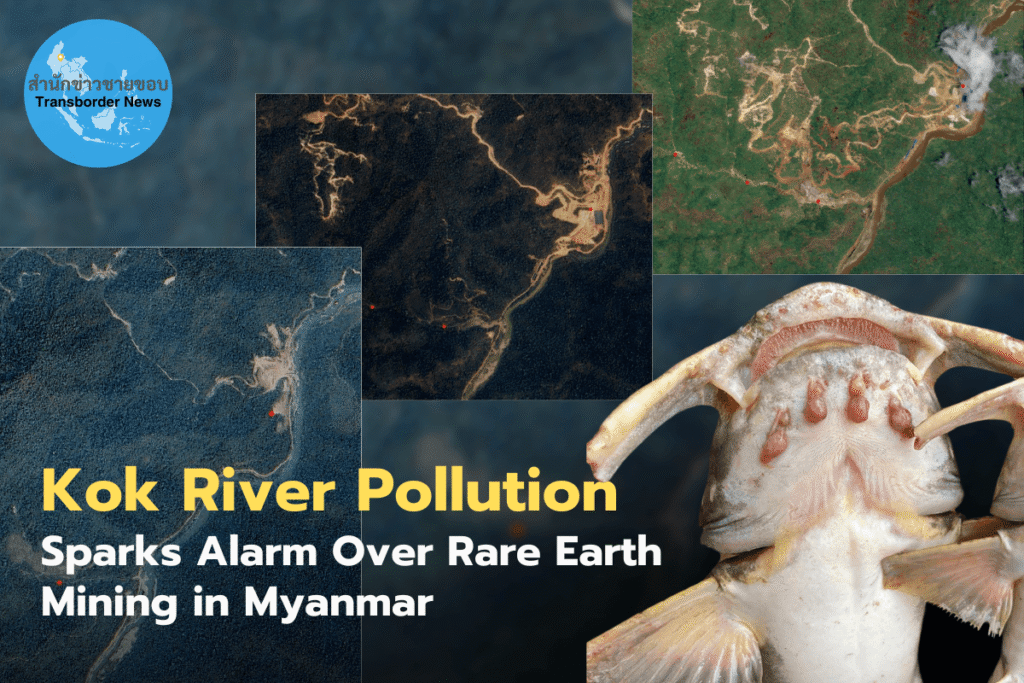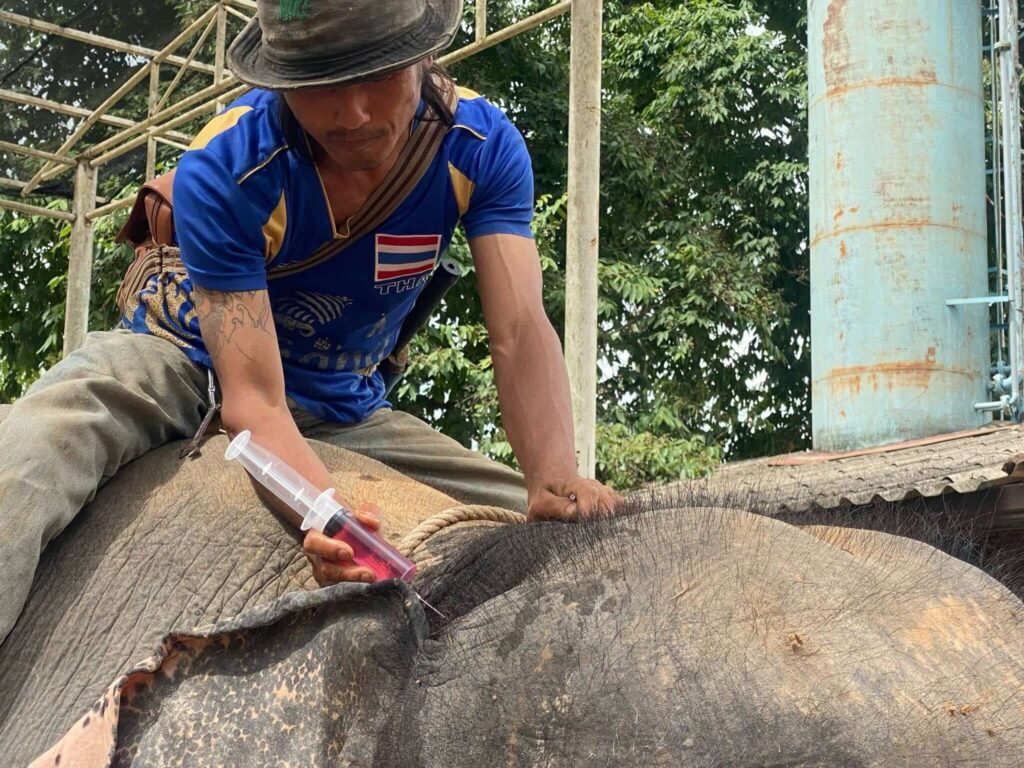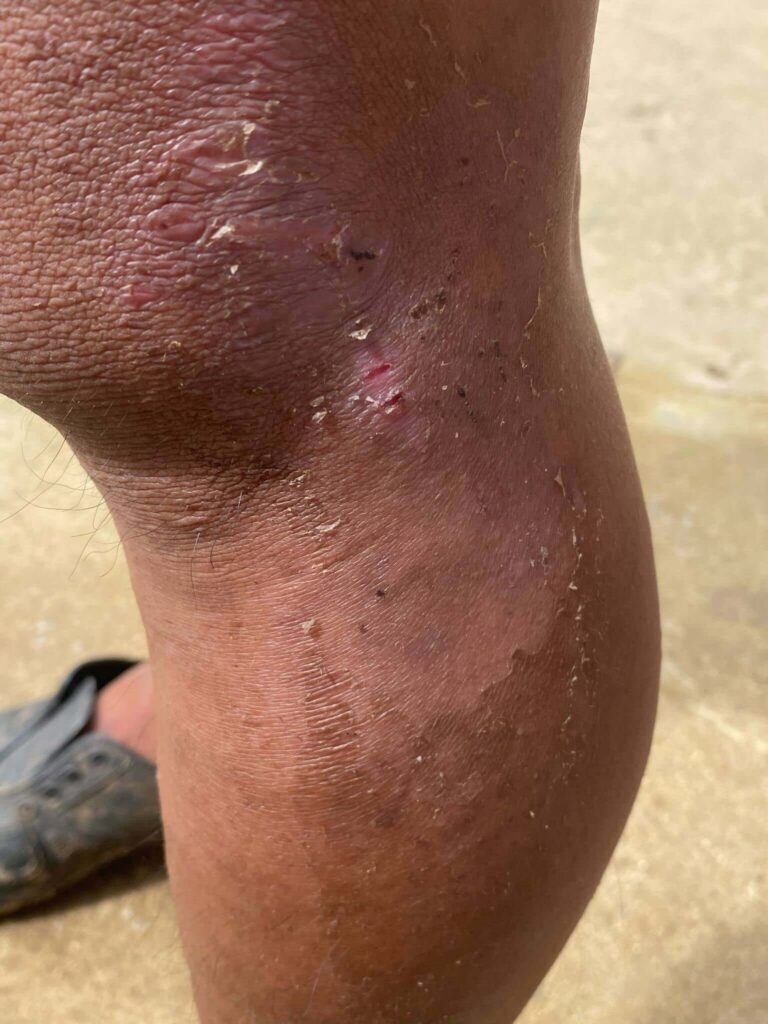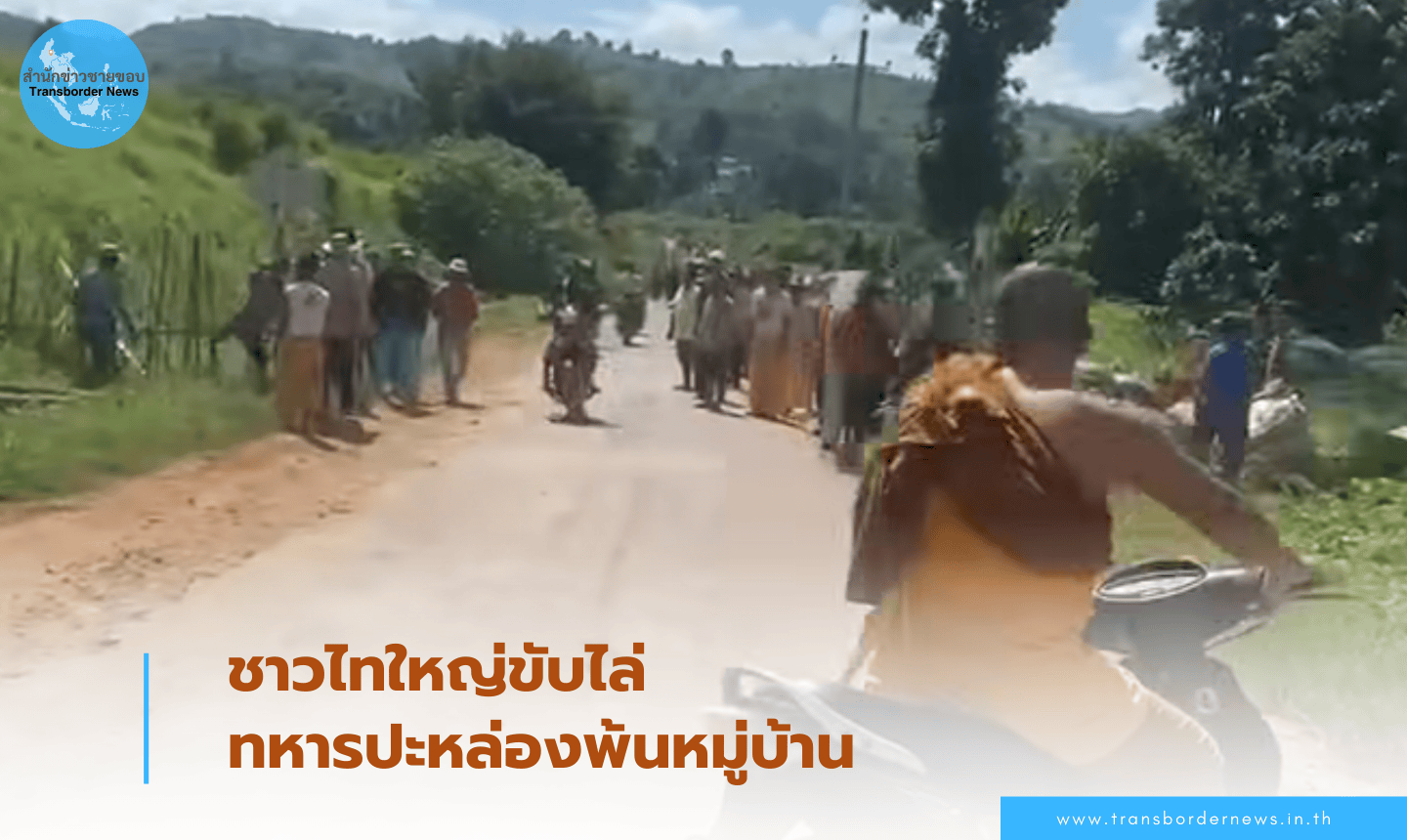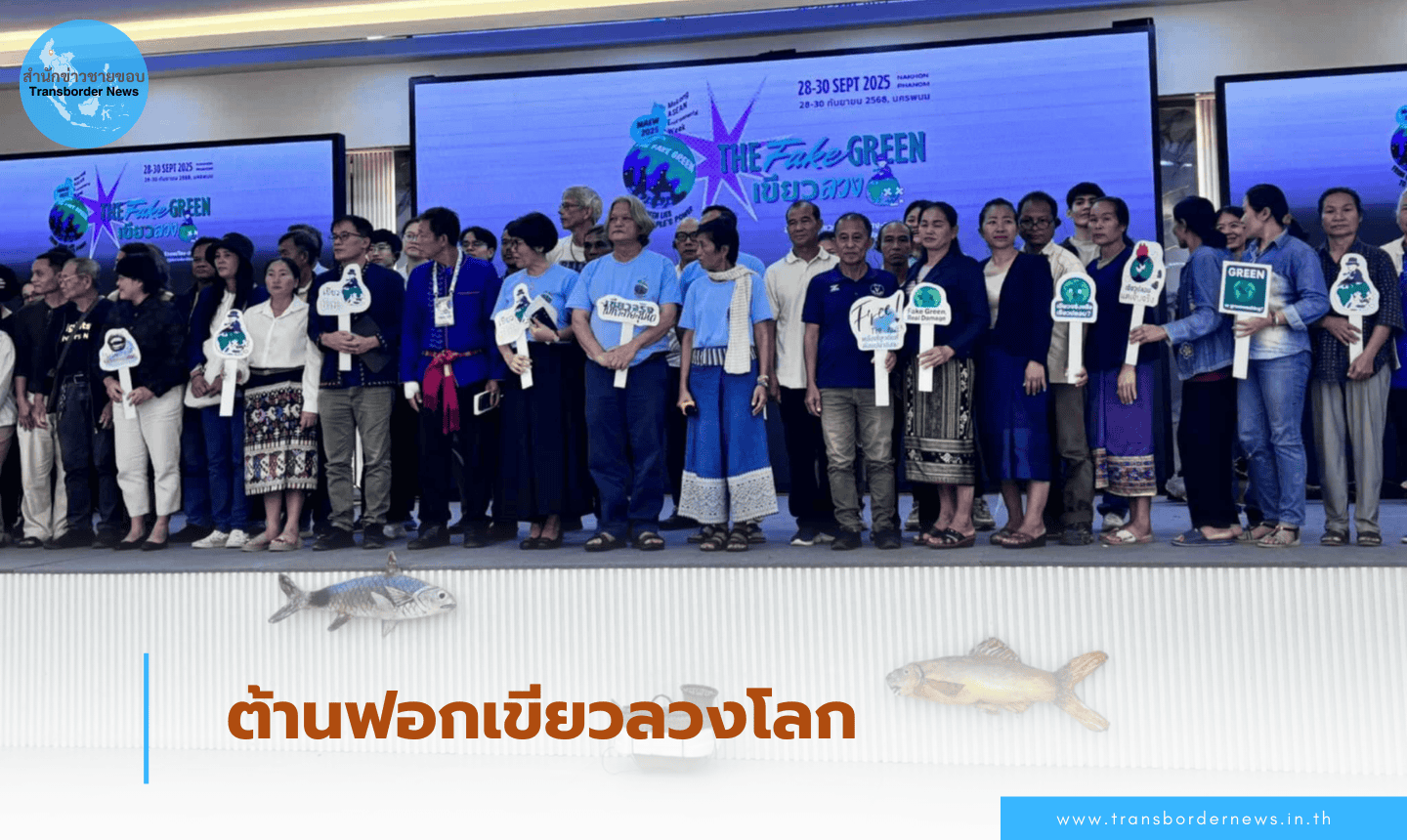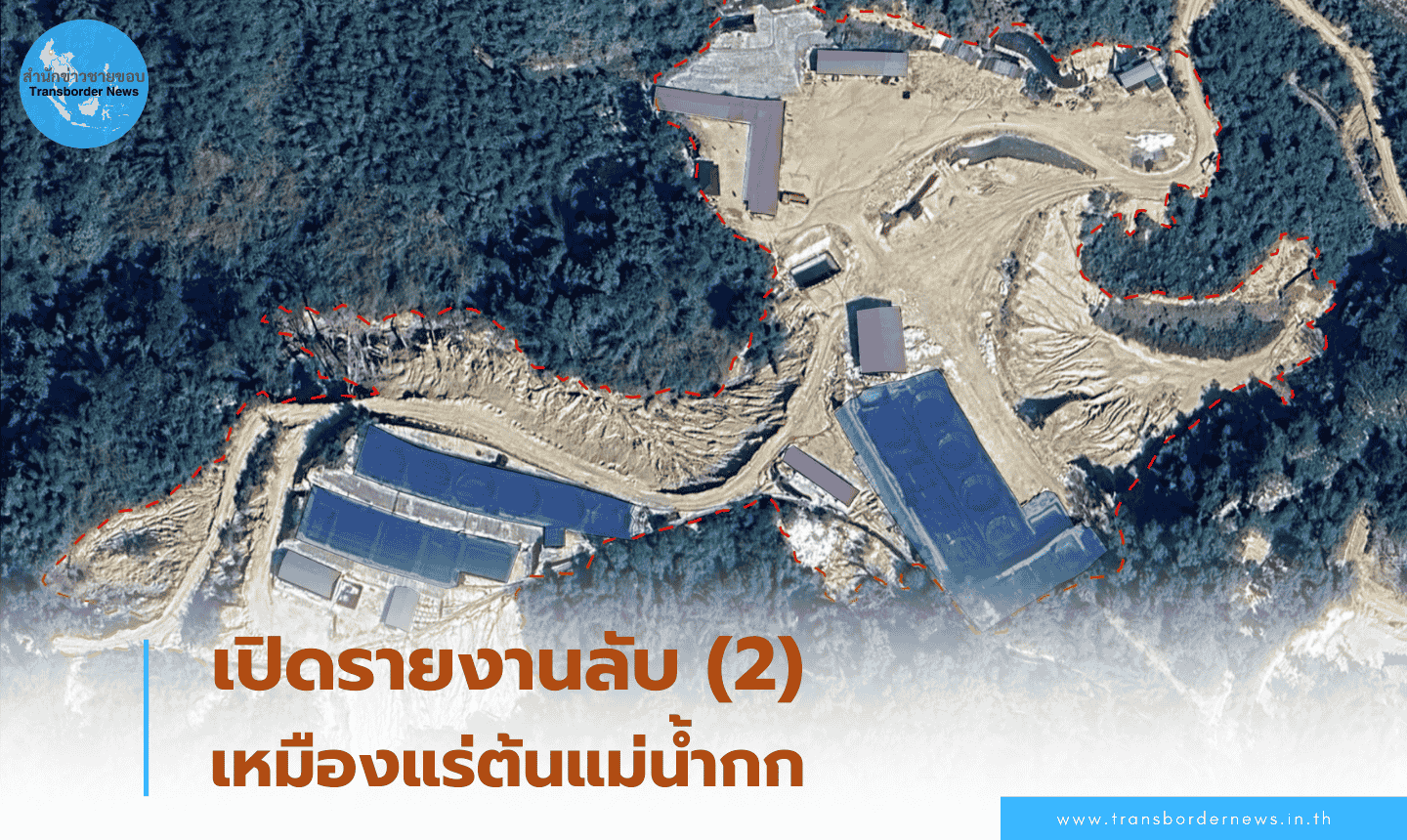Rare earth mining operations in Myanmar’s Shan State near the Thai border are raising cross-border environmental concerns, with Thai officials and conservation groups warning of toxic waste contaminating the Kok River, a vital waterway serving over a million people.
Satellite images released by the Shan Human Rights Foundation on Wednesday show two rare earth mining sites in Mong Yawn, southern Mong Hsat township, about 25 kilometers from Thailand’s Mae Ai district. The mining sites feature rows of circular leaching pools consistent with in-situ chemical extraction techniques widely used in Kachin State, which have been linked to severe environmental degradation.
Historical imagery shows that mining operations east of the Kok River began in mid-2023, and another site west of the river has been active since mid-2024.
“These mines are using highly toxic chemical leaching processes. If waste is entering the river system, this could have major transboundary impacts,” the foundation said in a statement.
The Kok River flows west from Shan State into Thailand’s Chiang Mai and Chiang Rai province, where local communities, wildlife, and tourism operators have reported signs of contamination. Thai parliamentarian Poonsak Janjampii, head of the House committee on land and environmental affairs, said satellite analysis conducted by Thailand’s geo-informatics agency GISTDA confirmed heavy upstream deforestation and land disruption consistent with unregulated mining.
“Between 2022 and 2024, forest cover in Mong Hsat was replaced by extensive mining infrastructure,” Poonsak told reporters.
Thailand’s Pollution Control Department has confirmed that contamination appears to originate upstream of the border, though initial testing of fish tissue showed heavy metals within legal limits. Broader tests, including on water and sediment, are ongoing.
In Chiang Rai’s Mae Yao subdistrict, one elephant and its handler fell ill in April after bathing in the Kok River, according to the Ruammit Karen Elephant Camp. The elephant developed open lesions, while the mahout experienced a severe skin reaction. Veterinarians later confirmed the symptoms were likely caused by exposure to chemical contaminants.
“We now prohibit elephants from entering the river,” said camp manager Siton Khampeng. “Tourism is down 80 percent. Our income is nearly gone, but the elephants are family—we can’t abandon them.”
On the Mekong River, where the Kok flows into, fishermen in Chiang Khong district have reported catching multiple sick pla kae (striped catfish) covered in red sores. Samples taken by the Chiang Rai Fisheries Department tested positive for parasites and bacteria.
“We’ve never seen fish like this before,” said local fisherman Oros Jinakan. “We’re still eating them, but now we’re worried.”
Chiang Rai provincial authorities have launched a second round of fish and water testing, funded by the Provincial Administrative Organization. Officials say earlier tests for arsenic, lead, mercury, and cadmium found levels within safety standards, but noted that those samples did not include visibly sick fish.
Thailand has no formal mechanism for addressing transboundary pollution from Myanmar. Poonsak said the military should consider direct engagement with non-state actors operating the mines, including the United Wa State Army, which is believed to control parts of Mong Yawn.
“Safe mining is possible, but not without regulation,” Poonsak said. “The current model (in Shan state) is fast, cheap, and toxic.”
As monsoon rains approach, experts warn that runoff from deforested and mined areas could intensify pollution and trigger floods and landslides, compounding the environmental and health risks facing communities downstream.
——
See original Thai articles, https://transbordernews.in.th/home/?p=42582
https://transbordernews.in.th/home/?p=42572
and https://transbordernews.in.th/home/?p=42552

